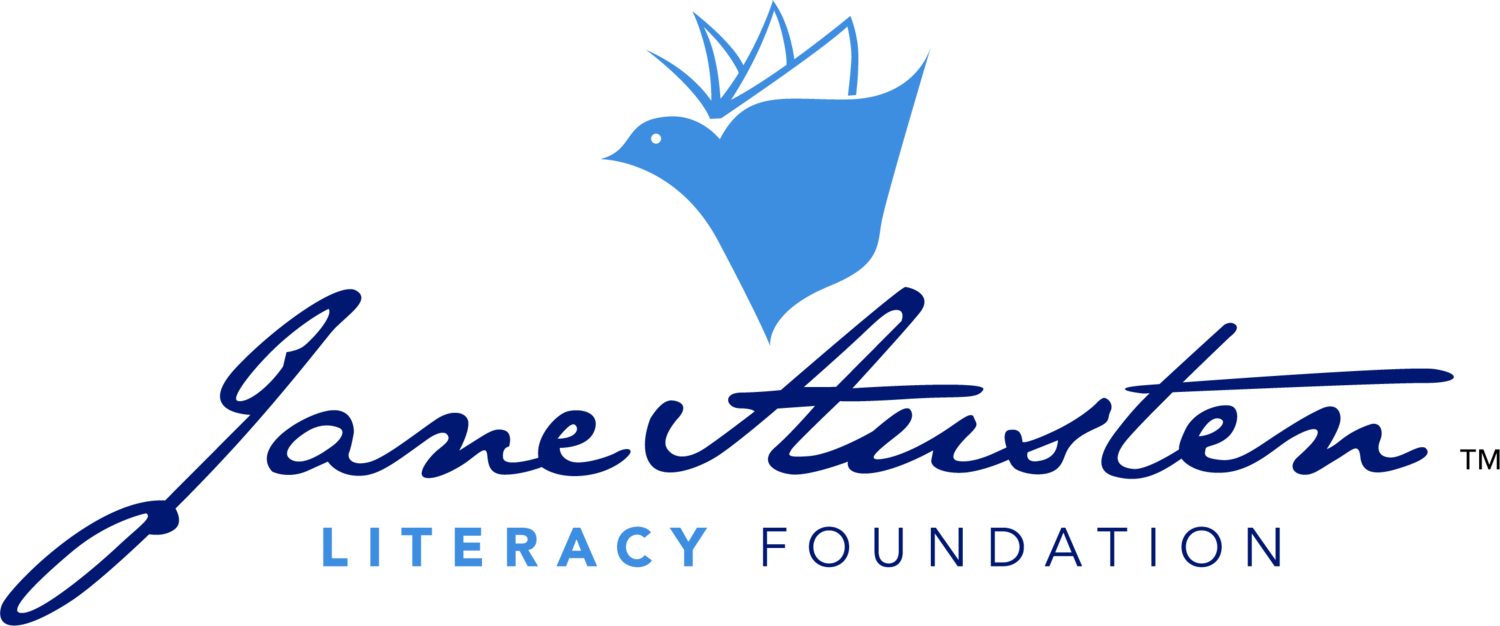AMANDA MORTENSEN DISCUSSES THE UNDENIABLE BENEFITS (AND JOYS!) OF READING
It is said that Jane Austen fainted when she found out that she was losing her family library. While this story may be apocryphal, we do know that Jane had a huge advantage in growing up with access to her father’s library (and later, her brother’s library) which helped create the wonderful author she became.
It is also true that many of us are extremely attached to our own books, devoting hours to collecting, reading and enjoying our tomes.
But did you know that books are actually GOOD for you? You probably know that they make you more educated and informed, but research is now showing that books contain many surprising benefits, beyond just their content.
1. Read books, live longer
A Yale university study of over 3,000 people concluded that book readers live longer than non-readers - by nearly 2 years on average! Book reading contributed to a survival advantage that was significantly greater than that observed for reading newspapers or magazines. It takes only 30 minutes a day of reading books to benefit survival, so get reading!
2. Get smart, surround yourself with books
You don’t even have to READ books to get a benefit. Simply growing up in a household with a home library is enough to improve educational outcomes. That’s right. Having more than 80 books in the home helps a child grow up to be more literate as an adult, than a university graduate with a small home library. The results hold true across 31 countries in this study, regardless of language. Growing up with home libraries boosts adult skills beyond the benefits you would expect to be accrued from your parents education or your own educational or occupational attainment.
Tidying guru Marie Kondo’s assertion that “30 books is enough” has been received with consternation in the Austen community. Many of us have a deep connection with books, and now we can honestly say that keeping a large library is good for us and our family.
3. Books can make you wealthy
And I don’t mean a copy of ‘How to Get Rich Quick on a 4 Hour Work Week taking advice from my Barefoot Investor Rich Dad Poor Dad in Babylon’. I mean that books themselves, as artefacts, are collectible and valuable items. While in general it is cheaper to buy second-hand books than new, if you are lucky enough to have a good quality first edition of a popular book, it will probably age like fine wine and increase in value. It doesn’t even have to be an old book. J.K. Rowling’s Harry Potter series has become a cultural phenomenon. A full set of first editions signed by the author are on sale for a cool US $40,000. If I had that much money I would rather buy a first edition of Jane Austen’s ‘Emma’ published in 1816 by John Murray for about the same price!
Of course, original manuscripts are worth a lot more. The most expensive ‘book’ ever purchased at auction was a copy of Leonardo Da Vinci’s handwritten notes called the ‘Codex Leicester’, for – wait for it – US $30.8 million. It documents theories on why the moon is luminous and how to find fossils, and is currently owned by Bill Gates.
4. Reading reduces stress
Reading is the best way to relax, compared to listening to music, going for a walk, or sitting down with a cup of tea. It only takes the body 6 minutes of reading to relax the muscles and heart, reducing stress by around two thirds. It is an ideal way to relax before bed, consequently improving sleep, which also has many beneficial effects on our stress levels. Experts believe that being drawn into a good book leads to levels of concentration and absorption that blocks out stressors, and reduces stress reactions in the body. No wonder it is my favourite way to chillax!
5. Reading makes us better humans
You don’t have to read inspiring biographies, or heavy textbooks. Reading fiction increases our empathy and ability to imagine the lives of others, thus helping us to understand and live harmoniously with our fellow man. It can literally make us less racist. Deep reading of fiction, especially literary fiction, lights up areas of the brain used for inferring the thoughts and feelings of others, a critical ability allowing humans to live in communities.
Participants of the 2018 JALF Walk for Literacy at Chawton House. Amanda Mortensen is third from the left. Credit: Julia Grantham
These days many of us have two libraries – ‘real’ books and virtual or e-books. The question of digital books replacing real ones was raised recently with a researcher who asserted that because books improve technical competencies, "the perception that [the] social practice of print book consumption is passe is premature.”
Good news for all of us bookworms. This gives us an excuse to continue expanding our libraries.
Books – real books – are not only purveyors of facts and acts and play and imagination – they are artefacts. Items we can cherish of themselves, not just for their content, but, like heirlooms, for their aesthetic beauty and joy they bring.
© Amanda Jane Mortensen - JALF Co-Founder and Ambassador
If you want to help protect your library, you can get a FREE personalised bookplate from the Jane Austen Literacy Foundation, by making a donation to literacy. Your donation will help improve literacy rates worldwide, and help make the world a better place.
Image credit: Julia Grantham



